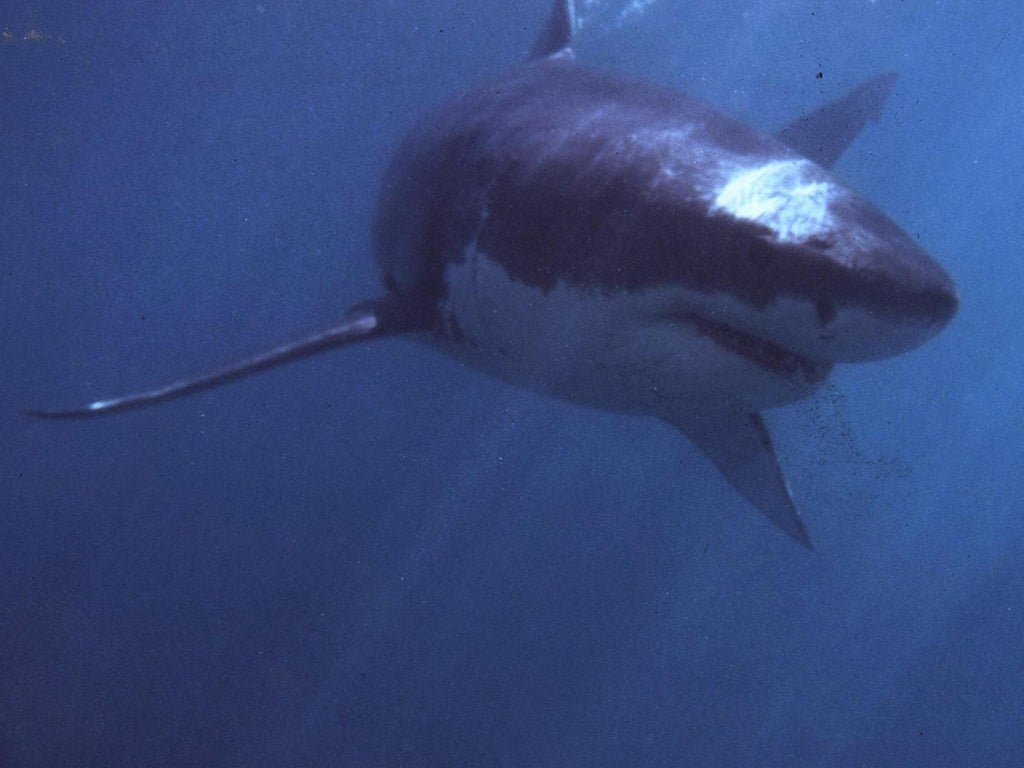The Independent's journalism is supported by our readers. When you purchase through links on our site, we may earn commission.
Australia's brutal cull proves humans are deadlier than sharks
Taxpayers' money would be better spent on increased surveillance, deterrents, and better public education about avoiding attacks


This week, in response to the kind of public hysteria that should really have its own theme tune, the state government of Western Australia (WA) began killing sharks near its beaches. According to the Discovery Channel's Shark Week website, you're more likely to be bitten by another person than by a shark. To put things in perspective, humans kill more than 100 million sharks and billions of other sea animals every year in contrast to about 10 people killed worldwide by sharks each year.
Sharks have been around longer than dinosaurs and they play an essential role in our oceans. But today, the great white or white pointer shark is a threatened species. The WA government's policy of catching and killing them makes a mockery of the federal government's own White Shark Recovery Plan, which recognises that the great white shark is fully protected in both Commonwealth and WA waters.
Great white sharks are so imperiled that they are on the World Wildlife Fund's "10 Most Wanted" list, which cites a burgeoning trade in teeth, jaws, and fins, coupled with increased commercial and sport fishing, as having pushed them into the ranks of wildlife most at risk from unregulated international trade. Sharks are particularly vulnerable because they grow and mature slowly, have long gestation periods and produce few young at a time. At least 100 species of sharks are known to inhabit WA waters. These sharks, along with dolphins, turtles and other marine life, will be at risk of serious injury and death if they are hooked on baited drum lines.
What makes this kneejerk shark-killing policy even more unthinkable is that there is absolutely no scientific evidence to support the slaughter of sharks as a solution to shark attacks, which is why most marine experts disapprove of this plan. According to Chris Lowe, professor of marine biology at California State University who analysed the data from the shark culls performed in Hawaii during the 1950s, culls show "no measurable effect on the rate of shark attacks on people". Australian taxpayers' money would be better spent on increased surveillance, shark tagging, the development of shark deterrents, more research and better public education about avoiding incidents between sharks and humans.
PETA US' Sea Kittens campaign pointed out that if fish were renamed "sea kittens", people would probably be more likely to stop hurting them and to treat them with the same amount of consideration and respect currently reserved for cats and dogs. Maybe if we were able to see beyond sharks' undeserved bad rap, it would go a long way toward sparing millions of them from slaughter. Porbeagle sharks, for example, have a playful side and have been observed playing with objects floating in the water and chasing after other sharks who trailed pieces of kelp behind them. Some sharks follow a pecking order when eating, with the biggest shark eating first, and work together to obtain food. Biologist Peter Best once saw several great whites working together to move the carcass of a partially beached whale into deeper waters so that they could eat it. They have their own communities, they communicate with one another and, while we may not be able to relate to them – that's our failing – they have every bit as much right to be on this planet and to live free from pain and persecution as we do.
It is utter hypocrisy and prejudice that allows us to protect certain species while we violently slaughter others. Certainly far more people are bitten and even killed by dogs every year than by sharks, and yet, it would rightly be unthinkable to bait and butcher Spot or Fido.
Unlike humans, sharks live in the ocean. If we know an area of water has had shark attacks – instead of going on a killing spree, let's just get out of their house, or will we not be satisfied until we've eradicated every other life form from the planet? The biggest predator is not in the ocean. It's on land, and it's us.
Join our commenting forum
Join thought-provoking conversations, follow other Independent readers and see their replies
Comments
Bookmark popover
Removed from bookmarks